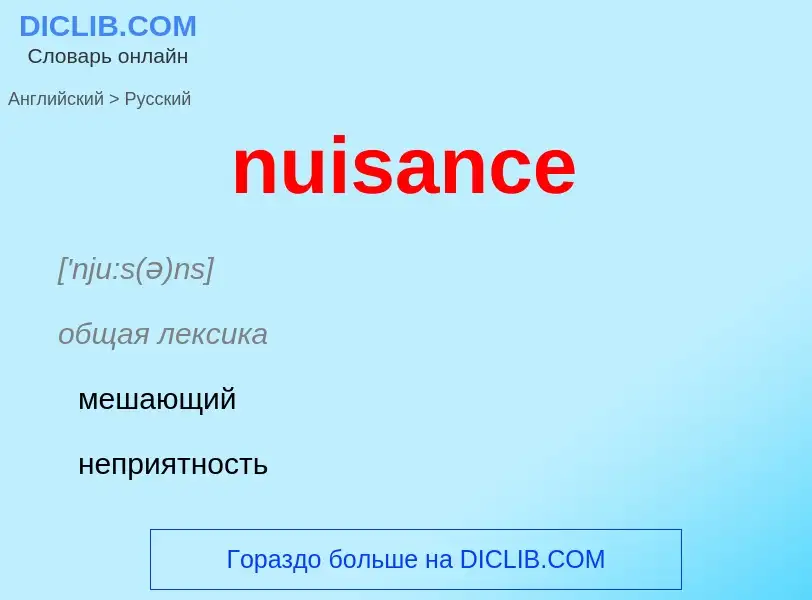Перевод и анализ слов искусственным интеллектом
На этой странице Вы можете получить подробный анализ слова или словосочетания, произведенный с помощью лучшей на сегодняшний день технологии искусственного интеллекта:
- как употребляется слово
- частота употребления
- используется оно чаще в устной или письменной речи
- варианты перевода слова
- примеры употребления (несколько фраз с переводом)
- этимология
nuisance - перевод на Английский
['nju:s(ə)ns]
общая лексика
мешающий
неприятность
помеха
нефтегазовая промышленность
вредное действие
ущерб
существительное
общая лексика
досада
неприятность
нудный человек
помеха
неудобство
досаждающий предмет
надоедливый человек
помеха, неудобство
психология
негативный раздражитель
юриспруденция
нарушение общественного порядка (обыкн. public nuisance)
общая лексика
нежелательное животное (причиняющее неудобство или являющееся помехой)
Определение
Википедия
Nuisance (from archaic nocence, through Fr. noisance, nuisance, from Lat. nocere, "to hurt") is a common law tort. It means something which causes offence, annoyance, trouble or injury. A nuisance can be either public (also "common") or private. A public nuisance was defined by English scholar Sir James Fitzjames Stephen as,
"an act not warranted by law, or an omission to discharge a legal duty, which act or omission obstructs or causes inconvenience or damage to the public in the exercise of rights common to all Her Majesty's subjects".
Private nuisance is the interference with the right of specific people. Nuisance is one of the oldest causes of action known to the common law, with cases framed in nuisance going back almost to the beginning of recorded case law. Nuisance signifies that the "right of quiet enjoyment" is being disrupted to such a degree that a tort is being committed.

![[[Raccoon]] on a roof. [[Raccoon]] on a roof.](https://commons.wikimedia.org/wiki/Special:FilePath/Waschbaer auf dem Dach.jpg?width=200)
